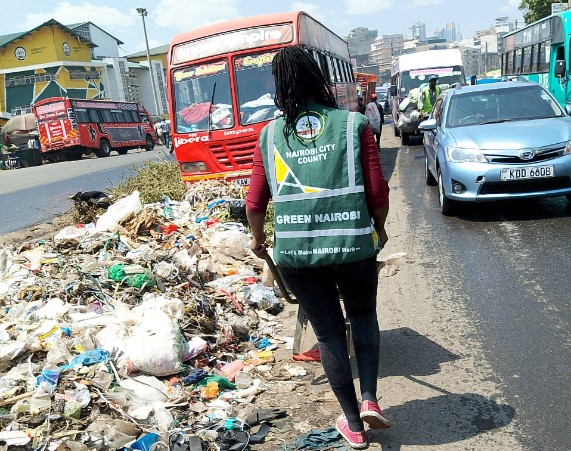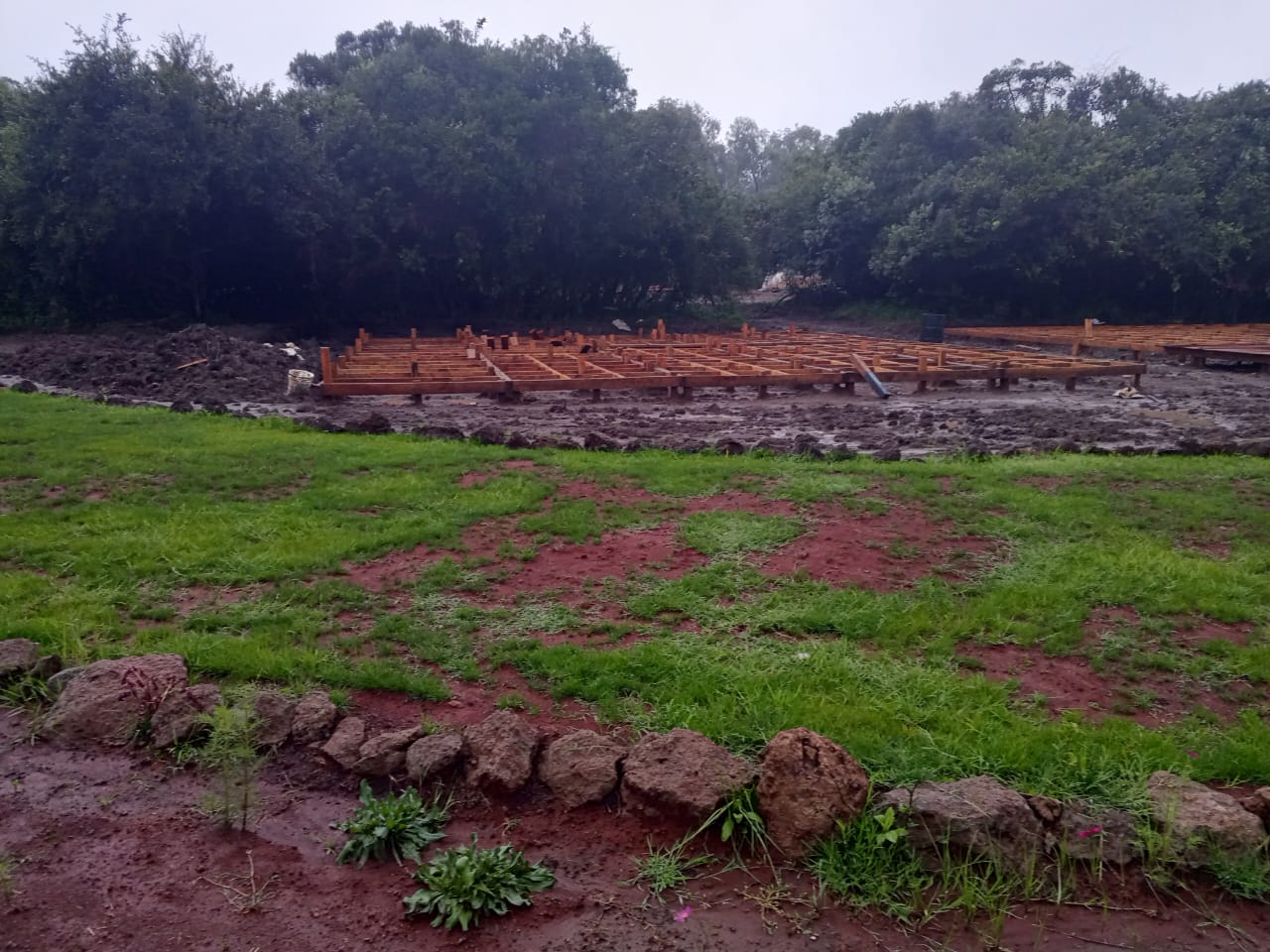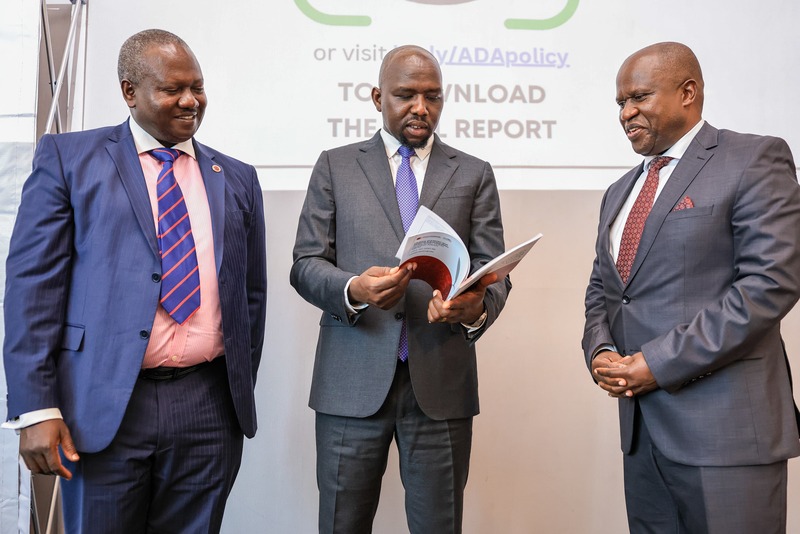Nairobi County govt blames residents for flooding, citing "illegal dumping mindset"

Nairobi County Chief Officer for Environment Geoffrey Mosiria said the habit of throwing garbage from vehicles along road reserves and relying on unlicensed waste handlers has worsened the garbage crisis in the city.
Nairobi County government has now blamed city residents for widespread illegal dumping, noting that it clogs drainage systems and contributes to persistent flooding during heavy rains.
In a statement on Monday, Nairobi County Chief Officer for Environment Geoffrey Mosiria said the habit of throwing garbage from vehicles along road reserves and relying on unlicensed waste handlers has worsened the garbage crisis in the city.
More To Read
- Sewage crisis deepens forcing Eastleigh traders to wear gumboots at work
- City Hall environment officials summoned over controversial garbage firm
- Tarmacking of Mvuma Nyuki Road spurs economic activity in Eastleigh South
- Nairobi County turns to new firm for garbage collection
- Eastleigh's Waudo Street descent into disrepair less than two years after tarmacking
- Nairobi’s Green Army shifts clean-up focus from CBD to residential areas
“Stop illegal dumping. Do not throw garbage from your cars or matatus along road reserves, where it ends up in rivers and clogs our drainage systems,” Mosiria said.
He said that although Nairobi has embraced modern technology like street sweepers and refuse compactors to enhance cleanliness, just like progressive cities such as Kigali, citizens must change their mindset for any real transformation to occur.
“We, as the county government, are committed to making sure the city is clean, but I’m calling upon the city residents to take responsibility for their city by making sure that they keep it clean. It is a collective responsibility, not an individual one,” Mosiria said.
Mosiria cited Rwanda’s capital, Kigali, as an example of what citizen-led environmental stewardship can achieve. He pointed to Umuganda, a national cleanup day in Rwanda observed by nearly every citizen, as a practice that Nairobians should emulate.
“In Rwanda, they do not dump garbage along road reserves like we often do. They do not blame the government for everything; they understand they are the government. They value and protect their country,” he said.
He also criticised the vandalism of public property in Nairobi, including the destruction of newly installed dustbins, saying that such acts undermine the city’s efforts to improve waste management.
Mosiria urged residents to stop handing their household and business waste to street families or unauthorised individuals, saying it only fuels Nairobi's garbage burden. Instead, he advised the public to hand over waste to licensed and authorised collectors.
He also called for the use of designated county transfer points for proper disposal and urged residents to avoid dumping raw sewage or any effluent into the environment.
“Environmental protection is not the government’s job alone; it is a shared responsibility. If we all take ownership of our environment, love it, and reject the ‘I don’t care’ culture, Nairobi can become one of the cleanest and most beautiful cities in the world,” he said.
Mosiria also warned community-based organisations (CBOs) and private waste collectors against dumping at unauthorised sites, saying their licences would be revoked immediately if found culpable.
“This reckless behaviour is a major contributor to the pollution affecting our environment and public health,” he said on Saturday.
“Any CBO or private operator found dumping at unauthorised sites will have their licences revoked without further notice.”
The county has begun identifying illegal dumpsites for closure as part of its crackdown. Additionally, a drainage system built for 500,000 now serves five million
Nairobi has long been grappling with drainage issues, even as the county blames residents for reckless dumping that clogs stormwater channels and contributes to recurrent flooding.
Most of the city’s sewer and drainage systems were constructed during the colonial era to serve a population of fewer than 500,000. Today, Nairobi’s population has grown to nearly five million, yet the infrastructure remains largely unchanged and inadequate.
Former Water Executive Vesca Kangogo said the outdated planning cannot support the city’s current demands.
“The planners did not foresee the population increase. The design of the city and major roads leading to the CBD makes it hard to properly address drainage in the CBD and the city outskirts,” she said.
Her remarks were echoed by County Chief Officer for Roads Fredrick Karanja, who called for urgent investment in a stormwater master plan.
“Inadequate design of a stormwater system automatically contributes to flooding. A big investment is required to separate the stormwater drainage and the sewer lines to stop the overflow,” he said.
Governor Johnson Sakaja also admitted that the system cannot handle the current volume of rainfall.
“The drainage system was built with a fixed capacity. It cannot handle the current volume of water during heavy rains,” he said.
Top Stories Today












































